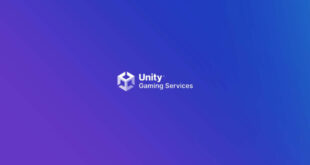During the last year, Facebook has been bullish about its plans to bring more variety to the platform’s gaming content as it looks to shake off a reputation for offering just casual and social titles.
The social network’s newly released games of the year 2013 rundown reveals seven games in the mid to hardcore market, while eight of the year’s best titles have been cross-platform between Facebook and mobile, another key cornerstone of the company’s future.
To find out more about the latest trends in gaming on the social network, Develop spoke to Facebook developer relations for games AJ Glasser on what these trends mean, fighting old perceptions and how it is supporting its rising core games market.
What are the trends in terms of games that you’ve noticed on Facebook in the past year, and what ones are the most popular?
The trends on Facebook in the last year have been pretty diverse. We saw a lot of movement in midcore and hardcore games this year. We had a few breakout hits as you can see on that list, Soldiers Inc had a really great summer. Thunder Run was another good one that made our list.
There are also some that actually aren’t on our list for various reasons but that were still very good hardcore experiences that launched this year, like Shadowgun: DeadZone that was built in Unity. So I would say that’s another trend, that a lot of developers are now working with Unity to build games that are both mobile and also web. So cross-platform would be a trend tied to that as well.
We saw a lot of games this year that were either on web already and launched completely synced mobile versions, or games that launched first on mobile and then came to canvas, like Jelly Splash from Wooga for example.
Cross-platform games seem pretty big on the moment between Facebook and mobile, is that what you see most developers doing now?
At this juncture, yes. I think that’s because the platform makes it very easy for developers to offer the same features on both, and rely on that synchronicity that players expect. That’s really the big one, you always want to be wherever your players are, and you aren’t always 100 per cent sure what device they’ll have in their hands, but whatever it is there’s a very high chance Facebook will be available on that device.
Core games in particular have been a thing that Facebook has been pushing. Why do you think developers are using Facebook for those kind of games?
I think it’s because it’s a really great way to connect directly with the players that are out there. Facebook is quite a large platform so the chances of being able to find players out here that like the games, that like first person shooters, real time strategy games and really deep, core experiences. It’s just easier to find them and then connect with them directly, then see how they play the game, what they think of the game, and integrate that feedback directly into the game.
Very few other platforms exist out there that allow that kind of direct one-to-one connection and that kind of reach. So I think a lot of developers have caught on to the ability to connect with an audience in an authentic way on our platform.
It’s one thing to just have a fan page for a game and try to develop the game and community that way, it’s another to have a game that’s actually on that platform, and a fan page and a feedback loop, that you can all kind of work with the ecosystem right where it exists.
Has Unity support changed the way developers use Facebook as a platform?
I can’t speak for individual developers. I can say that Facebook is pretty impressed with Unity, and it has certainly changed the way that we thought what we could offer on our platform. As you know, we launched the Facebook Unity SDK this year, it came out of beta a few weeks ago, and working so closely with Unity really helped us see the challenges that developers face when considering platforms, the needs developers have when they’re constructing a really rich 3D experience, and helped us evaluate what our platform looks like and what we can do to make it a much, much better experience for all involved.
And Unity SDK was really just the first step in the much longer road of providing that kind of support for all kinds of developers, not just for core, but definitely those that are interested in working with 3D.
What other things are you looking at doing then to attract these developers?
I can’t get into too many specifics, but I can say that the broader pattern of our behaviour has been to go where the developers are going to be. We host events at the Facebook campuses, such as the Evenings with Facebook, where we bring in a bunch of Unity developers and have them just hack on their games with us, in the actual event, alongside engineers to work together on it.
We also send a team of engineers to local meetup groups in different cities. We’ve been to Austin, to San Francisco, and we’re planning another one in London. So we try to stay involved with the developer community and participate on that level, to get the feedback that we need and build the features, but we can’t talk about specific features just yet.
A lot of European developers are coming on to Facebook now, why do you think that is?
It’s tough to say. Europe has always had a very engaged web community in terms of building games. I think for a long time they had their own resources, websites and game platforms that they worked with and were comfortable with, and that really considering Facebook as a viable option, or even considering mobile and cross-platform, was a discussion that picked up in the last 12 to 18 months or so. So they were always there but just not really hitting their stride until the last year or so.
I mean King has been around for so long. I think sometimes people forget they had their own web platform with their own games on it. That was a thriving business before they ever even thought about Facebook. So it was just a matter of time before they began to explore that avenue and then when they hit big, it becomes of interest to everybody in the region.
There’s previously been a suggestion that a lot of developers have been leaving Facebook as a platform and going into mobile. Do you think that’s changing again now, that developers are going back and putting their games on mobile? There’s this alleged decline of social gaming, and Facebook was a big part of that. Is that wrong?
That’s what I would hypothesise. The data I have to look at shows me there were more game launches this year than in previous years, there was more revenue made and a higher number of developers paid out to this year, and more money being paid out to this year than in previous years.
So I fail to see the argument, but it’s certainly a story we’ve heard before. So when we engage with developers who are sceptical, we just show them what has been done, we show them the successes games have had, and showing the games of the year is part of that, look what we’ve accomplished.
Pretty Simple’s Criminal Case, that just blew it out of the water for 2013 in terms of what you can do on this platform just on your own. So I think that just speaks for itself.

 MCV/DEVELOP News, events, research and jobs from the games industry
MCV/DEVELOP News, events, research and jobs from the games industry



